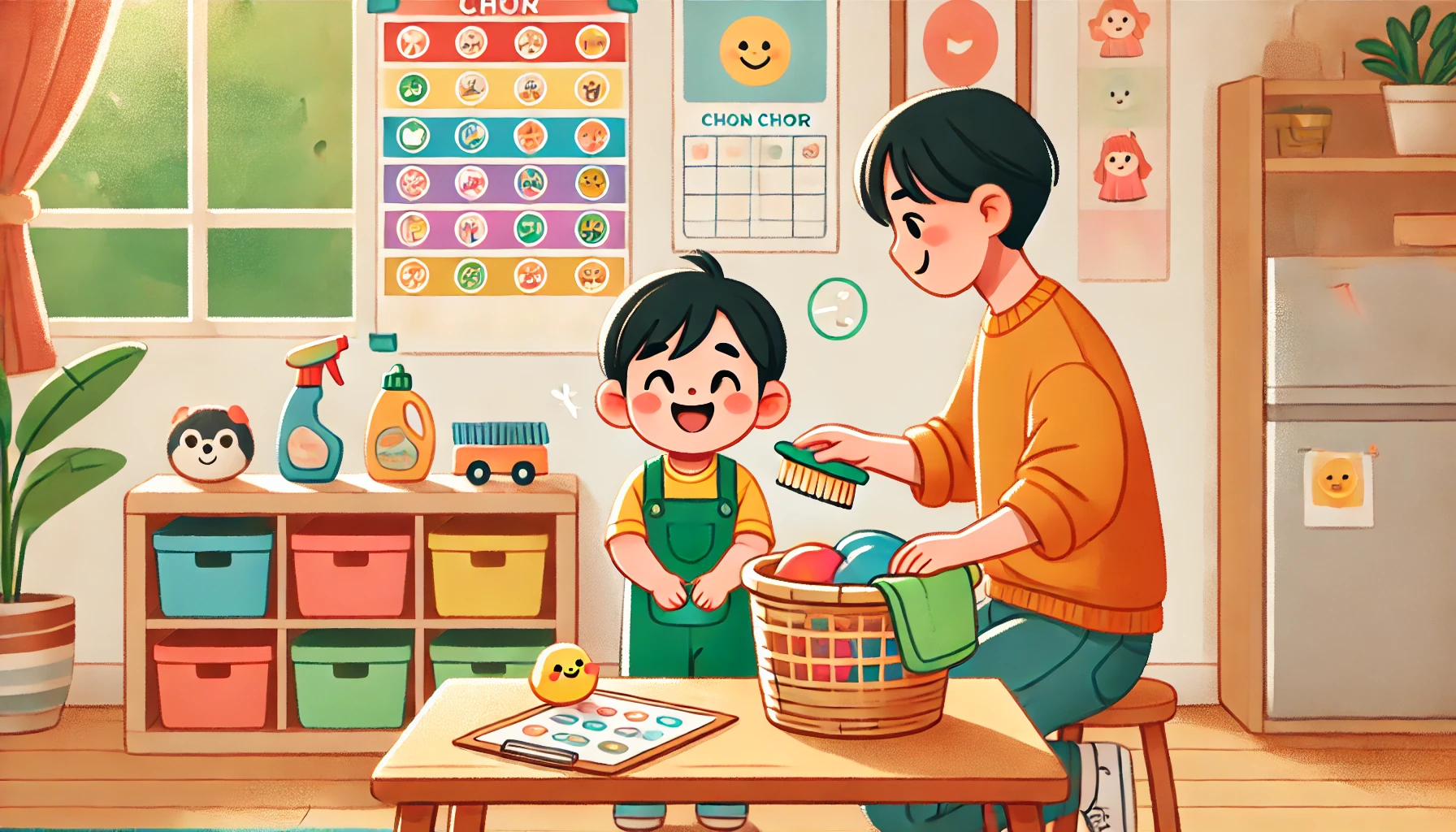How to Teach Young Children About Responsibility Through Chores
Teaching responsibility is an essential part of raising independent and capable children. Even at a young age, children can start learning about contributing to their household through simple, age-appropriate chores. Not only do chores teach practical life skills, but they also build a sense of pride, teamwork, and ownership.
Why Chores Are Important for Children
- Build responsibility and independence
- Foster teamwork and family cooperation
- Boost self-esteem and pride in contribution
- Teach time management and routine
- Prepare children for future challenges
1. Explain Responsibility in Simple Terms
Make the concept easy to understand.
Activity Idea:
- Say: “Responsibility means helping take care of our home and our things.”
- Use examples they can see: “Feeding the pet is a responsibility because it helps our pet stay healthy.”
- Ask: “What jobs do you think you could help with?”
What Kids Learn:
- What responsibility looks like at home.
- How their actions matter.
- Ownership of tasks.
2. Assign Age-Appropriate Chores
Start with tasks they can succeed at.
Activity Idea:
- For toddlers: putting toys in a basket, helping feed pets.
- For preschoolers: setting the table, watering plants, dusting with a cloth.
- Use a visual chore chart with pictures to track daily tasks.
What Kids Learn:
- Practical life skills.
- Confidence in their abilities.
- The value of routine.
3. Make Chores Fun and Playful
Turn chores into games!
Activity Idea:
- Set a timer: “Let’s see if we can tidy up before the timer rings!”
- Play favorite music while cleaning.
- Pretend play: “You’re a super cleaner saving the house from dust!”
What Kids Learn:
- That responsibility can be enjoyable.
- Energy and motivation for tasks.
- Fun in teamwork.
4. Work Alongside Your Child
Model the behavior you want to teach.
Activity Idea:
- Clean up together and explain your actions: “I’m folding laundry to keep our clothes neat.”
- Praise effort: “You’re doing a great job wiping the table!”
- Show how family members work as a team.
What Kids Learn:
- Chores are a shared responsibility.
- Observing adult routines builds understanding.
- Encouragement matters.
5. Use Visual Charts and Checklists
Visual tools build independence.
Activity Idea:
- Create a colorful chart with daily chores and space for stickers or checkmarks.
- Review the chart together each evening.
- Celebrate completed tasks with praise or small rewards.
What Kids Learn:
- Tracking progress feels rewarding.
- Independence in completing tasks.
- Responsibility can be visualized.
6. Teach the Purpose Behind Chores
Understanding builds motivation.
Activity Idea:
- Explain: “We wash the dishes to keep them clean and ready for the next meal.”
- Show results: “See how shiny the floor is after we sweep?”
- Connect chores to care: “When we care for our things, they last longer.”
What Kids Learn:
- The value and outcome of their work.
- Real-world cause and effect.
- Care for belongings and shared spaces.
7. Celebrate Effort, Not Just Perfection
Focus on participation.
Activity Idea:
- Praise: “You tried so hard to fold the towel, great effort!”
- Avoid redoing tasks in front of them—appreciate their work.
- Reflect together: “What chore did you enjoy today?”
What Kids Learn:
- Confidence in trying.
- Growth mindset around learning tasks.
- Encouragement to keep helping.
8. Gradually Increase Responsibility
Build skills over time.
Activity Idea:
- Add new tasks as your child grows: sorting laundry by color, helping cook simple meals.
- Let them take ownership: “Would you like to be in charge of feeding the pet this week?”
- Celebrate milestones: “You’ve learned so many chores—amazing!”
What Kids Learn:
- Growth in abilities.
- Pride in new responsibilities.
- Progress feels rewarding.
Final Thoughts
Teaching young children about responsibility through chores sets them up for lifelong success. When children see themselves as helpful contributors to the family, they build confidence, empathy, and important life skills. Through simple routines, fun games, and positive reinforcement, chores become more than tasks—they become meaningful lessons in responsibility and pride.
